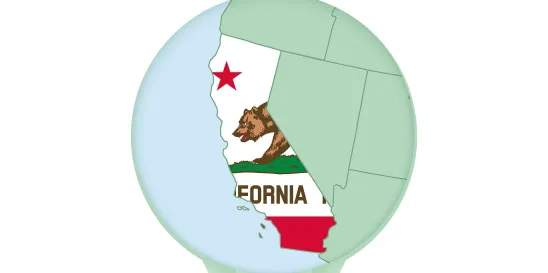On Oct. 13, 2023, California Governor Gavin Newsom signed CA AB39, the Digital Financial Assets Law (DFAL), which is the first comprehensive framework to regulate the digital asset market in the state of California. As such, California joins New York and Louisiana as the third state to have a virtual currency specific regulatory licensing framework. While this GT Alert focuses on California, it is also worth noting that the Consumer Financial Protection Bureau is also considering using the Electronic Fund Transfer Act to protect consumers from fraudulent crypto transfers, showing that the desire to step up consumer protection in the virtual currency space is not limited to just California or even the states at large. The DFAL takes effect July 1, 2025.
Overview
The DFAL prohibits businesses from engaging in (or holding themselves out as engaging in) “digital financial asset business activity” with a California resident as defined in the DFAL (a “Resident”) without obtaining a license from the California Department of Financial Protection and Innovation (DFPI). The DFAL defines “digital financial asset” and “digital financial asset business activity” as follows:
“Digital financial asset” means a digital representation of value that is used as a medium of exchange, unit of account, or store of value, and that is not legal tender, whether or not denominated in legal tender.
- However, the term “digital financial asset” does not include any of the following:
| — | A transaction in which a merchant grants, as part of an affinity or rewards program, value that cannot be taken from or exchanged with the merchant for legal tender, bank or credit union credit, or a digital financial asset. |
|
| — | A digital representation of value issued by or on behalf of a publisher and used solely within an online game, game platform, or family of games sold by the same publisher or offered on the same game platform. |
|
| — | A security registered with or exempt from registration with the United States Securities and Exchange Commission or a security qualified with or exempt from qualifications with the DFPI. |
“Digital financial asset business activity” means any of the following:
- Exchanging, transferring, or storing a digital financial asset or engaging in digital financial asset administration, whether directly or through an agreement with a digital financial asset control services vendor.
- Holding electronic precious metals or electronic certificates representing interests in precious metals on behalf of another person or issuing shares or electronic certificates representing interests in precious metals.
- Exchanging one or more digital representations of value used within one or more online games, game platforms, or family of games for either of the following:
| — | A digital financial asset offered by or on behalf of the same publisher from which the original digital representation of value was received. |
|
| — | Legal tender or bank or credit union credit outside the online game, game platform, or family of games offered by or on behalf of the same publisher from which the original digital representation of value was received. |
License Requirements
The DFAL applies to any person engaging in (or holding themselves out as engaging in) digital financial asset business activity with a Resident. However, like many state money transmission laws, the DFAL exempts, among other persons, SEC/state registered securities broker-dealers, federal/state governmental entities, FDIC-insured banks, and entities that provide processing, clearing or settlement services solely for transactions between/among persons that are exempt from the DFAL’s licensing requirements. Furthermore, the DFAL, like the BitLicense under New York law, exempts consumers buying/selling crypto for personal use, as well as merchants that accept crypto for goods/services. It is also worth adding that both the DFAL (again, like the BitLicense) contains surety bond, capitalization, recordkeeping, and disclosure requirements.
Conditional License
The DFAL provides for conditional licensure of an applicant with a pending license application, if that applicant holds a BitLicense or is chartered as a New York state limited purpose trust company with approval to conduct a virtual currency business under New York law (collectivity “NY VCBA Approval”), and if that NY VCBA Approval was issued on or before Jan. 1, 2023.
Disclosure Requirements
The DFAL also subjects licensees to extensive consumer disclosure requirements. These disclosure requirements include:
- Information regarding whether the product or service is covered by certain insurance protections.
- Information regarding the irrevocability of a transfer or exchange and any exceptions.
- Information regarding the Resident’s right to at least 14 days’ prior notice of a change in the licensee’s fee schedule, other terms and conditions that have a material impact on digital financial asset business activity with the Resident, or the policies applicable to the Resident’s account.
Stablecoin-Specific Provisions
The DFAL includes provisions that specifically address stablecoins,1 notably prohibiting an entity from exchanging, transferring, or storing stablecoins unless (1) the issuer of the stablecoin is an applicant, licensee, a bank, a California-licensed trust company, or a national association authorized under federal law to engage in a trust banking business, and (2) the issuer at all times maintains certain levels of “eligible securities” (as defined in the DFAL) against the outstanding stablecoins. The DFAL further specifies that the DFPI may require issuers of stablecoins to be licensed by the DFPI prior to issuing certain stablecoins.
Applicability to Gaming Publishers
As mentioned above, the DFAL’s definition of digital financial asset business activity includes exchanging digital representations of value used within online games, game platforms, or a family of games (collectively “Games”) for a digital financial asset offered by the same game publisher (a “Publisher”), or for legal tender or bank or credit union credit outside the Game. However, the DFAL’s definition of digital financial asset explicitly excludes a digital representation of value issued by or on behalf of a Publisher that is used solely within a Game sold by the same Publisher or offered on the same game platform. As such, Publishers that issue in-game tokens that can be exchanged for digital assets or fiat may fall within the DFAL’s ambit and require licensure.
Exchange-Specific Provisions
The DFAL, like the BitLicense, requires exchanges to certify that the exchange has conducted a comprehensive risk assessment regarding the digital financial asset the exchange wishes to list. As part of the certification process, an exchange must evaluate the likelihood that a listed digital financial asset would be deemed a security under federal or California law. It is also notable that certification is not required for any digital financial asset approved for listing on or before Jan. 1, 2023, under the New York State Department of Financial Services virtual currency law.
Robust Enforcement Powers
The DFAL grants the DFPI extensive enforcement authority, including the authority to bring enforcement proceedings against an entity that has engaged, is engaging, or is about to engage in digital financial asset business activity with, or on behalf of, a Resident in violation of the DFAL. While the DFAL does not provide details concerning the closeness in time required for an entity to be “about to” engage in digital financial asset business activity, Governor Newsom urged the DFPI, in his signing message, to clarify ambiguities in the DFAL when establishing implementing regulations.
Next Steps/Conclusion
While the DFAL does not take effect until July 2025 and we are awaiting implementing regulations to address a number of grey areas, entities engaging in virtual currency activities in California should begin evaluating whether their activities in California are within the DFAL’s scope. Assuming that an entity’s activities in California are within the DFAL’s scope, such entities should prepare to come into compliance with the DFAL and obtain licensure if necessary.



 />i
/>i

